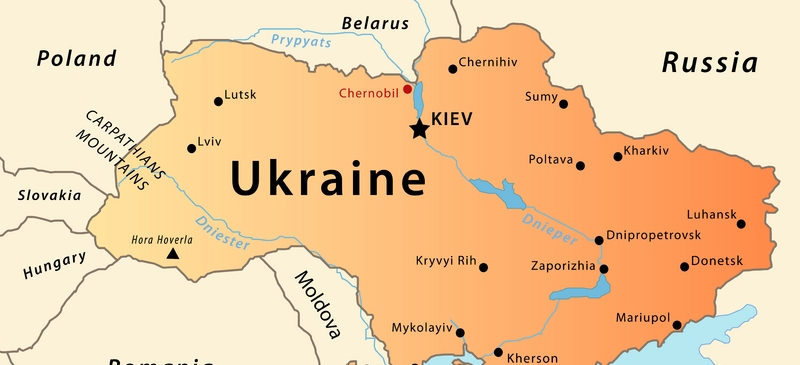
Ukraine needs new politicians
by Charles Grant
Ukraine is heading for an economic crash. At least that was the message I picked up in the Crimean resort of Yalta earlier this month, at the 'Yalta European Strategy' conference. The point of this annual event is to bring Ukraine closer to the European Union. At last year's conference Gerhard Schröder and Bill Clinton dropped in; this year, Tony Blair and Mikheil Saakashvili urged Ukraine's leaders to push ahead with reforms that would speed up European integration.
But Ukraine's politicians are not listening. The two parties in the governing coalition, President Viktor Yushchenko's Our Ukraine, and the Bloc Yulia Tymoshenko (BYuT), are at daggers drawn with each other. The presidential election due in 2009 dominates politics. Yushchenko fears a challenge from Tymoshenko, who is more popular than him, and each seems to be focused on damaging the image of the other. Meanwhile, the economy is on the brink of collapse but neither politician is prepared to take the unpopular measures that would be required to stabilise it.
The political system is deeply corrupt and there are virtually no neutral state institutions: the electoral commission and the supreme court are packed with party nominees. One of Ukraine's brighter and younger politicians, Rada speaker Arseniy Yatsenyuk, was blunt in Yalta: "Our problem is a lack of political maturity, we have no standards, we don't have a clear idea how to enforce laws or penalise people, we have no strong prosecutor's office, and the judicial system is deteriorating."
Meanwhile the economy, which had picked up in the past few years, with growth of 7 per cent in 2007, faces huge problems. Inflation, at 30 per cent, is the third highest in the world, after Zimbabwe and Venezuela. The government is boosting transfer payments and public sector wages in an effort to buy political support. The trade deficit is running at 12 per cent of GDP. The government has foolishly tied the hryvnia to the dollar, which encourages hot money to flow in and fuel inflation. Ukraine's industries – predominantly metals, chemicals and food processing – are losing competitiveness. Another problem is that Ukraine is locked into one of its regular rows with Russia over the price of gas imports. If, as is likely, Ukraine ends up having to pay a significantly higher price, its gas-dependent heavy industries will suffer.
The question of NATO membership is exacerbating divisions among the political elite. The opposition Regions party, led by Viktor Yanukovich, is strongly against, while Our Ukraine is strongly for. BYuT would in theory like to join NATO in the long term, but does not want to push this for now on the grounds that it would divide the country.
In Yalta, Sergei Glaziev, a senior Russian economist and a former minister, described how Russia would react if Ukraine entered NATO: "Ukraine would lose its free trade area with Russia, we would raise gas prices, Russian companies would cut off co-operation with Ukrainian ones on high technology, and we would impose visa restrictions." That was quite moderate. Last month, at a conference in Moscow, I heard foreign minister Sergei Lavrov say that if Ukraine joined NATO, some Russians would question Ukraine's borders. Yuri Luzhkov, the mayor of Moscow, has explained what that means: Crimea should be chopped off Ukraine and given to Russia.
Such threats show that the Russians are failing to overcome their historic inability to make friends with their neighbours. Ukrainians do not like being bullied. As it happens, only about 20 per cent of them want to join NATO. But Russian threats tarnish the attractiveness of the big eastern neighbour, even in Ukraine's east, where people are naturally sympathetic to Russia. The Russians are wasting their energy when they threaten Ukraine, since there is no chance of it joining NATO in the foreseeable future. The pro-NATO Yushchenko is likely to be out of office in a couple of years, while France and Germany are determined to veto American efforts to give Ukraine a 'membership action plan.'
The question of the EU membership, by contrast, generally unites Ukrainians: easterners and westerners all want to join (Russia does not mind Ukraine joining the EU). The EU and Ukraine are negotiating a 'deep free trade' agreement, meaning one that would remove non-tariff as well as tariff barriers, and foster regulatory convergence. But many Ukrainians worry about the cost of implementing such an agreement. In order to comply with EU standards and therefore be able to export to EU markets, Ukraine would need to spend billions of dollars, say government officials. Yet EU aid to Ukraine totals only €200 million a year. Furthermore, some of Ukraine's oligarchs may resist free trade with the EU; they fear that outside competition could disrupt their cosy cartels.
Given that the EU is not offering Ukraine the carrot of a membership perspective, the political and business elites may be reluctant to embrace the – sometimes painful – reforms that would bring Ukraine closer to the Union. To his credit, France's President Nicolas Sarkozy is trying to get the EU to offer closer political links. Ukraine's deputy prime minister in charge of EU integration, Hrihoriy Nemyria, spelt out in Yalta what Ukraine wanted: "The long term goal of visa-free travel, money from the European Investment Bank, and integration into all EU agencies and programmes."
Fine ideas. But if Ukraine’s political class continues to perform abysmally, and if the economy crashes, there is little chance of the EU wanting to embrace Ukraine. Yatsenyuk told the truth in Yalta: "We're not ready for EU, we should wait five years before we try to get in. In five years there will be a new political elite in charge in Ukraine." Let us hope he is right on that last point.
Charles Grant is Director of the Centre for European Reform
